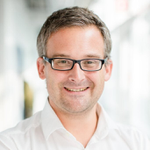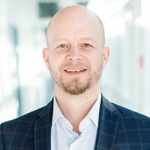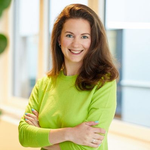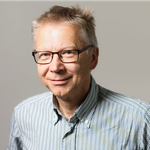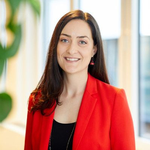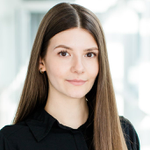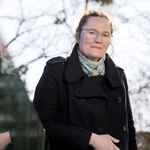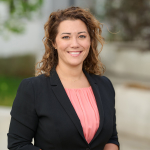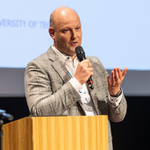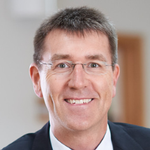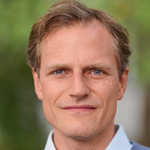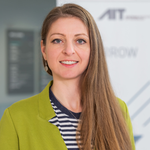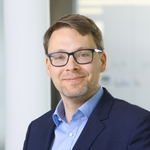- Welcome and walking tour in Linz
- Tour of the "There is no Planet B" exhibition ("Ars Electronica Center" museum) & networking activities
- Welcome dinner
- Welcome by hosting entities
Simon Moser•Robert Tichler•Aksana KrasatsenkaThe DHC+ Summer School, organised by DHC+ Platform / Euroheat & Power, is hosted by Energieinstitut an der JKU Linz. Representatives of the host organisation will welcome the participants.
- Introduction to DHC 1/2
Sven Werner - Coffee break
- Introduction to DHC 2/2
Sven Werner - Lunch break
- Participant's presentations
- Coffee break
- District heating and cooling in Austria and in Europe
Aksana Krasatsenka•Clara Maria Habeler - EU legislation and policy
Pauline LucasThis lecture offers a comprehensive introduction to EU energy policy, specifically tailored for individuals with no prior experience. The latest developments in EU energy policy will be addressed, with a particular emphasis on the implications for the district heating and cooling sector, including an in-depth analysis of the Fit for 55 package.
The session will also provide insights into the future landscape for DHC under the new European Parliament and Commission mandate. Attendees will engage in group discussions on specific topics provided during the class, ensuring a dynamic and participatory learning experience.
- Waste heat recovery from existing industrial and future processes
Gabriela Jauschnik•Simon Moser - Coffee break
- Bringing stakeholders together
Gabriela Jauschnik•Simon Moser - Lunch break
- Sector coupling
Jan Eric ThorsenThe lecture is split into 3 sections:
1. What is the concept of sector coupling in the perspective of DH,
2. Copenhagen - as an example of a large sector coupled system,
3. Sønderborg - as an example of a small sector coupled system. - Site visit 1
The first excursion will lead to the Linz-Mitte CHP plant of Linz AG, the largest network operator in Upper Austria. Situated within the heart of an expansive industrial area, the plant park showcases a variety of district heating generation technologies. Participants will gain firsthand insights into the operation of a waste incineration plant, a biomass plant and gas-fired CHP plants. One of the highlights of the site visit will certainly be the 65 meter high thermal storage, one of the largest in Europe, providing additional security of supply to the network. Additionally, the participants will gain practical insights in utilizing industrial waste heat for district heating. Linz AG is committed to the provision of district heating with renewable sources, with the current renewable energy share standing at 40%. During the excursion, participants will also learn about the construction of the new flue gas condensation plant in combination with heat pumps, which will make Linz's district heating even more climate-friendly.
- Dinner
- Networking drinks
- District heating business model
Kristina LygnerudThe lecture addresses the characteristics of a conventional district heating business model. The characteristics will be contrasted to the features of a business model where the district heating is based heat sources that are not combusted (for example waste heat from industrial processes or from urban processes). The concept of energy as a service will also be discussed in the district heating context. The lecture will contain an element of group discussion on a specific topic provided in class.
- Coffee break
- Financing instruments for heating & cooling decarbonisation
Giulia ConfortoThis session will draw over the most commonly used sources of financing for DHC systems, including private and public schemes, innovative instruments, and with a focus on the peculiarity of geothermal DHC networks and their need for risk mitigation. As a comprehensive mapping of currently available public and private financing schemes was recently carried out in the projects CoolLIFE and SAPEHA, this will be shown and used to collect potential sources of funding in the exercise.
- Lunch break
- District cooling engineering and design
Igor KrupenskiThis lecture explores the engineering and design principles of district cooling systems, vital for sustainable urban cooling. Participants will grasp key concepts including system layout design, cooling load estimation, and technology selection, enabling them to contribute effectively to the implementation and optimisation of district cooling projects in urban settings. Tools for design of the district cooling pipelines will be also provided and explained.
- Coffee break
- Site visit 2
The second excursion will take the participants to the district cooling facilities in Linz, an important component of the city's energy infrastructure. As the primary provider of heating and cooling in Upper Austria, Linz AG operates three district cooling centres in the city and three local district cooling plants. During the site visit, participants will learn how cooling is provided through the use of electric chillers and how heat is converted into cold via absorption chillers. This understanding will highlight the potential of these technologies to conserve energy and minimize environmental impact.
- Improvement and decarbonisation of the existing district heating systems
Stefan HollerIn this lecture, we're going to look at why it's important to improve and transform existing district heating systems. We'll start by looking at why there's a need for transformation of district heating systems in the first place. We'll then look at the technical and economic aspects of the transformation from two different angles. One is the heat source perspective, with a focus on low-temperature heat from renewables and waste heat sources. For instance, you'll learn about the potential of using waste heat from urban sewer systems. On the other hand, you'll also look at building services engineering and the question of how much energy refurbishment is needed to reduce the temperature of the building's heating system. To do this, you'll learn about the innovative concept of a temperature cadastre and how it can be used in heat planning.
- Coffee break
- Austrian Heat Map
Marcus HummelThe lecture will introduce the Austrian Heatmap, which is the entry point to geolocated data related to heating and cooling in Austria. The available data will be explained, and their potential use will be discussed. Furthermore, the national comprehensive assessment of efficient heating and cooling (according to EED2023, Art. 25) will be introduced, which is the legal basis of the platform and related analyses.
- Large thermal energy storage in DH – technologies, trends and challenges
Teresa SchubertThe transition to renewable energy sources leads to the need to integrate storage systems to balance intermittent energy production and peak energy demand. This lecture explores the technical options and challenges of storing large amounts of thermal energy. An overview of established and innovative technologies down to component level and illustrative examples will provide an insight into seasonal thermal energy storage. Based on a discussion of recent research trends and demonstration successes, approaches to address these challenges will be presented.
- Lunch break
- Long-term transformation strategies • Launch of the REWARDHeat Hackathon
Ralf-Roman Schmidt - Coffee break
- REWARDHeat Hackathon
Ready to hack? This year's Summer School will feature a Hackathon! This competition will encourage cross-functional collaboration, creative thinking, and the development of essential soft skills. Participants will tackle one or more challenges related to the REWARDHeat EU-funded project on low temperature DH and waste heat recovery, working in teams to find the best solutions and innovative ideas. The most outstanding showcase will be awarded. Get ready to collaborate, create and compete!
- REWARDHeat Hackathon
Ready to hack? This year's Summer School will feature a Hackathon! This competition will encourage cross-functional collaboration, creative thinking, and the development of essential soft skills. Participants will tackle one or more challenges related to the REWARDHeat EU-funded project on low temperature DH and waste heat recovery, working in teams to find the best solutions and innovative ideas. The most outstanding showcase will be awarded. Get ready to collaborate, create and compete!
- Coffee break
- REWARDHeat Hackathon
Ready to hack? This year's Summer School will feature a Hackathon! This competition will encourage cross-functional collaboration, creative thinking, and the development of essential soft skills. Participants will tackle one or more challenges related to the REWARDHeat EU-funded project on low temperature DH and waste heat recovery, working in teams to find the best solutions and innovative ideas. The most outstanding showcase will be awarded. Get ready to collaborate, create and compete!
- Lunch break
- REWARDHeat Hackathon
Ready to hack? This year's Summer School will feature a Hackathon! This competition will encourage cross-functional collaboration, creative thinking, and the development of essential soft skills. Participants will tackle one or more challenges related to the REWARDHeat EU-funded project on low temperature DH and waste heat recovery, working in teams to find the best solutions and innovative ideas. The most outstanding showcase will be awarded. Get ready to collaborate, create and compete!
- Presentations
- Jury deliberation
- Winners & certificates ceremony
- Drinks
- Farewell dinner
- Goodbye breakfast
